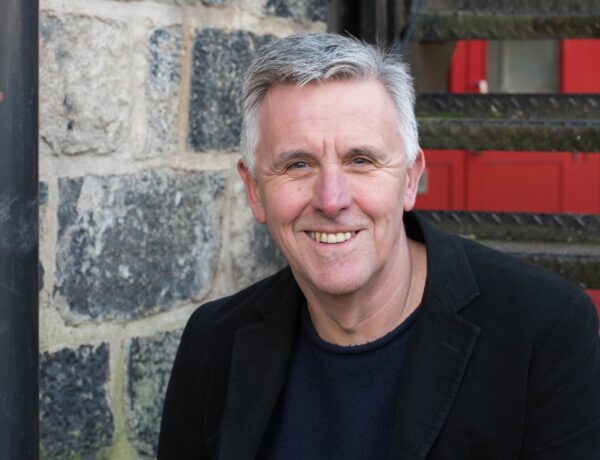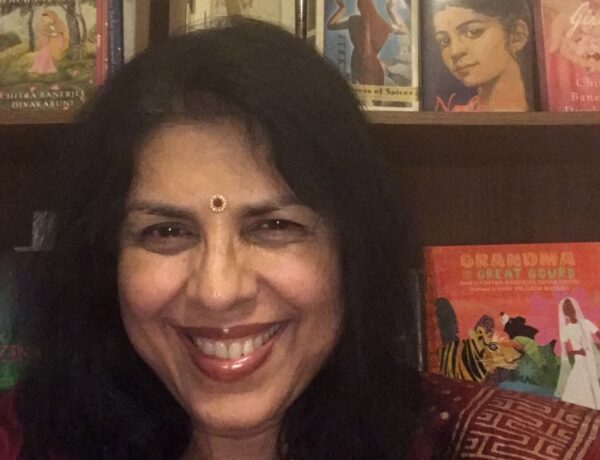Justin Heckert is from the Bootheel of Southeast Missouri and his writing has appeared in ESPN, Vanity Fair, The Ringer, GQ, The New York Times Magazine, WIRED, The Oxford American, Esquire, Grantland and many other publications.
His first job as a reporter was at Atlanta magazine, and in three years there he was twice named Writer of the Year by the City and Regional Magazine Association. He is a graduate of the University of Missouri School of Journalism and a recipient of the James D. Atwater Memorial Writing Prize for best writing in the school. He and his wife, Amanda, who is executive editor at Garden & Gun magazine, live in Charleston, SC., with their two dogs, brothers Oscar and Felix.
Hi Justin, thanks for joining us today! You’ve written an incredible article about the most valuable ticket from a sporting event in history. Can you share with us your initial thoughts and feelings when you first heard about this story and decided to write about it?
Thank you so much! I saw a couple brief stories about this guy named Mike Cole stumbling upon what I’ve dubbed “The Jordan Ticket” in his basement. The articles—tantalizingly short, an AP story and one in the Chicago Tribune, I think—posited that the ticket, the only known of its kind and from Michael Jordan’s first pro game, was likely going to be the most valuable ticket to a sporting event in history when it sold at a (then) shortly-upcoming auction.
Probably for a million bucks or more. I can’t remember if the articles mentioned when the auction was ending, or if I went to the Heritage Auctions site and looked for myself; but either way, the ticket was going to sell in around four or five days from when I first saw the news about Mike. I *immediately* thought: the day the ticket sells is going to be an amazing day in Mike Cole’s life. And a significant day in sports history, to boot. I really want to be there and write about it!
Also, it would be a chance to hang my own shingle with all the others in the written bible of MJ lore. But there was really no time. At all. I sent a brief and impassioned (and noted as very time-sensitive) pitch to my editor at ESPN. Thinking there was just no way to get it assigned and get up there, etc. A day or two later, to the credit of Scott Burton and Justin Carissimo and Ryan Hockensmith at ESPN, I was on a plane to Connecticut.
As a freelance writer based in Charleston, South Carolina, how do you typically go about choosing the stories you want to write about? What was it about the story of the ticket from Michael Jordan’s debut game that captivated you?
I wish I knew where to get ideas, so I could mine the same source for them, always. But it’s never been that easy. I began my career at Atlanta magazine, and discovered that while reporting one story, I might stumble upon something that led to another (for instance, a random thing I heard while writing this story led to this one).
A journalistic phenomenon that has kinda remained true, at least for me, for 20 years now. I still have ideas stored from years ago that I want to eventually write. I think ideas accrue, and remain timeless in a writer’s mind. I’ve done stories after a family member has mentioned some strange thing from the past. Or reading a line or two from a book. I’ve done plenty of stories that have been assigned. Or, you know, reading Wikipedia at like 3:30 AM. Definitely from watching YouTube. And from reading newspapers (less so nowadays). But mostly never from sitting around and Googling random things.
Also, I don’t purposefully look for stories that have anything to do with the Charleston area, where I live. Which brings us back to the Jordan ticket story, of course. That happened in Connecticut. A place that’s actually teeming with people who work and write for ESPN, which is funny to me (and I’m grateful they didn’t care about that at all when deciding to assign this). As to the last question, I wanted to write about Jordan, to add something unknown to his lore. And through Mike Cole, the story is both not about Michael Jordan, and yet is. He lives inside every paragraph, pretty much.
In your writing process, how do you balance providing a detailed narrative while also keeping the article engaging and easy to read? Were there any specific challenges you faced while writing this piece?
Well, my interest or aim isn’t to make a piece easy to read, per se. As an avid reader, I’m always writing for myself, actually—myself as the reader in mind. I don’t mind being challenged by a writer; in fact, I love writing that challenges me as a reader.
However, this story is fairly simple in that it really centers around a single day—the day of the great auction—in one random man’s life. Trying to convince Mike to let me hang out with him was a challenge in that I didn’t start out by letting him know (or requesting when I first reached out to him) that this would have to require me spending tons of time with him.
I first met him and we conversed for a long while before I broached the topic of him letting me go back to his house. Something else that was difficult was finding others who kept a ticket from that game, or who’d purchased one, wanting that piece of history. Ultimately, I found around seven people who either attended the game and kept a ticket, or who’d purposefully bought a ticket from that game as a collector’s item.
There were around 1500 words about some of these characters excised from the story, because it did feel like introducing them and explaining the stories of that game from their perspective, and the stories of their own tickets, really took us far away from Mike’s story, which is the main story.
The story of Mike Cole and his ticket is quite extraordinary. How did you approach building a rapport with him to get the necessary information and insights to create such a compelling narrative?
I emailed Mike at his Quinnipiac email address and asked him if I could interview him in person about the ticket and the auction, about what this experience (being in the public eye) was like. After he said yes I flew up there to meet him at a restaurant on the day of the auction.
When I was in front of him, at Sliders Grill and Bar, after we’d had a beer and spent an hour or so talking, I began to broach the topic of spending much more time with him. He didn’t say yes, at first. In fact, he demurred that his wife probably wouldn’t want me to come see their house. I didn’t beg or press. As we kept talking and getting more familiar with one another, I very cautiously began to explain why I needed to be at his house with his neighbors during the auction; and what I mean by cautiously is that I didn’t go anywhere near basically demanding this had to be the case.
It was more like, “In a perfect world, now that you know a little about me and this story idea, can I be there? And here is how it would service this larger story idea.” One of my friends can vouch for me about how nervous I was about ultimately getting the access I was sure I needed.
A dear writer friend lives in Connecticut and visited me at my hotel, to discuss some of this. I was pacing in the room! I was very anxious because I wasn’t sure if I could get Mike to agree to extra time, just talking through with my friend how I ask a stranger to let me hang around until the end of an auction that I figured wouldn’t end until past midnight.
Your article weaves together different elements, such as nostalgia, sports history, and personal anecdotes. How do you decide which aspects to focus on and how to structure your article to make it cohesive and engaging?
If I’m being honest, I rarely think about structure. Or at least I don’t obsess about it. I hardly ever outline. I don’t consider myself a storyteller—the experience I’m aiming to provide a reader is not, I hope, like them sitting down and listening to a friend or relative regale an anecdote at a bar. I think of myself as a sentence writer. Thinking about a potential first sentence while I’m still reporting.
The only way I’ve ever written is to try and begin with a sentence I think is good, and then another. And then read them. And then write a third. Read them in sequence. And then write a fourth. And then go from there, it’s always maddening. I just try and spend as much time as I can on sentences not only to build the rhythm of the story in my head, but ultimately so that hopefully people keep reading. For this particular story, I wrote two versions of the lede.
The first was, “The ticket made him famous with his neighbors.” I really liked the sound of that. And the initial first section was what is now the second section of the piece. About this random interesting guy, where he lives, and finding the ticket. But I’d also written “The ticket was in one of his pockets and stayed there during the game,” before that, to build a section out of how he kept the ticket, but didn’t use it as the original lede. And my editor said, smartly, you know, it’s probably better if we don’t begin this ESPN story with some random funny descriptions of this man and his place in his random Connecticut neighborhood, but instead just get right into the import of the ticket itself.
So then, I went back to my initial sentence, the first sentence I actually wrote but didn’t use when I turned in the first draft, and then took the lede about his neighbors and made it the first sentence of the second section. It’s always a process.
While researching for this article, did you come across any other fascinating stories related to sports memorabilia or events that you might want to write about in the future?
Yes. One thing in particular. And if you don’t mind, I really don’t want to give it away!
As a writer, how do you approach immersing yourself in the world of your subjects to better understand their motivations, emotions, and perspectives? Do you have any specific techniques or methods that you use to achieve this?
I don’t feel like I’m a good interviewer, or that I have some kind of automatic great rapport with others. To the contrary. My whole life I’ve been a huge introvert. I really try to take a huge breath right before I meet with a new person that I’m writing about, and just tell myself to BE myself, and be curious about their life and open to listening to everything they say. I often let other people dictate where they want conversations to go, and then steer them back if need be. Of course that depends upon time. If I only have an hour, I won’t just let someone ramble. I’ll be more focused.
I’d love to know about the books you’re reading at the moment. What have been some of your favorite recent reads?
I just read Slaughterhouse-Five, it was great. The Adventures of Augie March by Saul Bellow. H is for Hawk by Helen McDonald. Late last year I read Pride and Prejudice for the first time. I try to read an hour or two every night, in bed. Let me check the notes app on my phone: in 2023 I’ve finished nine books thus far. During the daytime I read a lot of nonfiction from Twitter links or the magazines we subscribe to. In bed I read old novels, mostly.
Affiliate disclaimer: Some links on this website are affiliate links. We may earn a small commission if you make a purchase through these links, but only promote products we truly believe in. We disclose affiliate links and give honest reviews.



No Comments